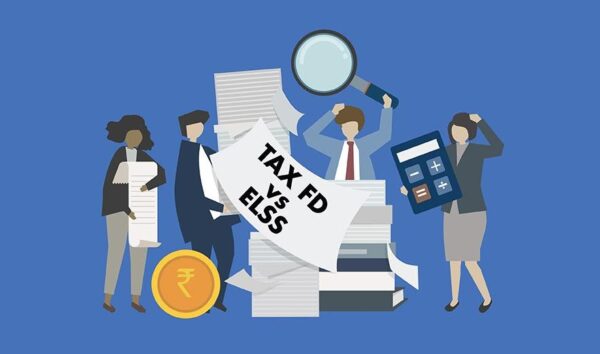In India, every paycheck that anyone receives is focused on the two things. The first is paying bills and covering different expenses. The second part is to set some money aside for savings. Even with the first part, most people try to lower they’re expenses to make sure they can save more money than they were initially planning to. Moreover, they also try to save as much as they can on tax just to end up with more money. This proves how much significance saving money has in India.
For this reason, the financial sector has over many years designed various schemes and tools that can help you save money more efficiently. Two such examples of these are FDs (fixed deposit) and ELSS (Equity Linked Savings Schemes). Out of the two, fixed deposits are more popular among customers than ELSS. The reason for that is that they are often considered safer saving options and can get you considerable profits through their interest rates.
Despite these benefits, if you compare and evaluate FDs and ELSS, the competition is very close. And since your savings are the building block to your future, making the right choice between the two is extremely important. Hence, here is a brief into what both these options are and how they compare against each other:
Tax Saving Fixed Deposits
The idea of a fixed deposit is to invest a lumpsum amount at once and earn profits off it based I the interest rate offered. While you earn profit, the principal amount that you invested originally remains intact.
A tax saving fixed deposit is variant of the standard fixed deposits that falls under the Income Tax Act’s section 80C. Under this FD, the amount you invest can earn you tax deduction. How much of a deduction you can get depends on how much money you invest in the FD. However, you can avail a maximum deduction of up to Rs 1.5 lac.
A tax saving fixed deposit requires you to agree to a lock-in period of minimum 5 years. This means you cannot withdraw the money you invested until 5 years after making the investment. Moreover, the interest you earn from the fixed deposit can be taxed as per the regular taxing slabs.
Equity linked savings schemes
First thing you should know about ELSS funds is that they are a type of mutual fund. However, what is unique about them is that they are the only mutual fund type that come under the scope of Section 80C of the Income Tax act. Similar to tax saving FDs, ELSS funds make your eligible for a tax deduction up to a maximum of Rs 1.5 lac per year.
ELSS funds have the potential to generate significantly higher returns. Moreover, ELSS can offer many more benefits than just superior returns. For example, ELSS also employs the concept of compounding. This means that your investment could very well end up being double over the course of the plan. Happy investing!














Be First to Comment